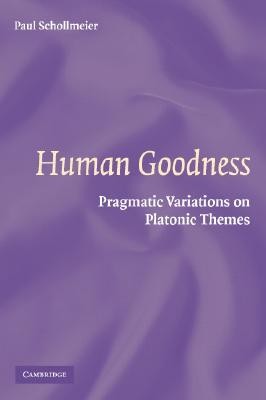
- We will send in 10–14 business days.
- Author: Paul Schollmeier
- Publisher: Cambridge University Press
- ISBN-10: 0521863848
- ISBN-13: 9780521863841
- Format: 16.2 x 23.4 x 2.6 cm, hardcover
- Language: English
- SAVE -10% with code: EXTRA
Reviews
Description
Human Goodness presents an original, pragmatic moral theory that successfully revives and revitalizes the classical Greek concept of happiness. It also includes in-depth discussions of our freedoms, our obligations, and our virtues, as well as adroit comparisons with the moral theories of Kant and Hume. Paul Schollmeier explains that the Greeks define happiness as an activity that we may perform for its own sake. Obvious examples might include telling stories, making music, or dancing. He then demonstrates that we may use the pragmatic method to discover and to define innumerable activities of this kind. Schollmeier's demonstration rests on the modest assumption that our happiness takes not one ideal form, but many empirical forms.
EXTRA 10 % discount with code: EXTRA
The promotion ends in 18d.08:17:15
The discount code is valid when purchasing from 10 €. Discounts do not stack.
- Author: Paul Schollmeier
- Publisher: Cambridge University Press
- ISBN-10: 0521863848
- ISBN-13: 9780521863841
- Format: 16.2 x 23.4 x 2.6 cm, hardcover
- Language: English English
Human Goodness presents an original, pragmatic moral theory that successfully revives and revitalizes the classical Greek concept of happiness. It also includes in-depth discussions of our freedoms, our obligations, and our virtues, as well as adroit comparisons with the moral theories of Kant and Hume. Paul Schollmeier explains that the Greeks define happiness as an activity that we may perform for its own sake. Obvious examples might include telling stories, making music, or dancing. He then demonstrates that we may use the pragmatic method to discover and to define innumerable activities of this kind. Schollmeier's demonstration rests on the modest assumption that our happiness takes not one ideal form, but many empirical forms.


Reviews